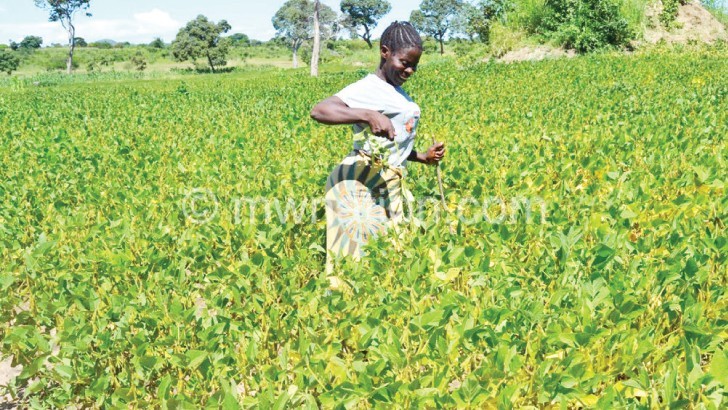‘Crop diversification key to achieving food security’
Evangelical Association of Malawi (EAM) has said communities can achieve food security if they embrace crop diversification in the face of climate change effects.
EAM general secretary Francis Mkandawire said this on Saturday during a field day at Magaleta Village in Traditional Authority Mlauli in Neno where farmers are implementing new farming methods under Strengthen Community Resilience to Climate Change project.

The project engages farmers in crop diversification, soil and water management, fertiliser multiplication, tree planting and natural forest regeneration and irrigation among other components, to adapt to climate change.
Mkandawire said in a wake of dry spells, crop diversification provides communities a chance to depend on a variety of crops.
“Maize is prone to effects of climate change and the overdependence on it causes perennial hunger. We can survive on cassava, pigeon and cow peas, millet and potatoes among other drought-resistant crops,” he said.
Mkandawire urged Malawians to change the mindset that acknowledges maize as the only food.
One of the community members from Tikondane Farmers’ Field School Enifa Sositeni hailed EAM for the project that has led to improved farm yields in the area.
“We have grown other crops not only maize. Implementation of these methods has increased farm produce and conserve the environment for our development,” she said.
Councillor for Ligowe ward Amos Duwe asked EAM to expand the project’s scope to other villages to save the whole area from perennial hunger.
EAM project officer Amos Bandawe said the project provides farming methods that help communities to cope up with effects of climate change.
EAM is implementing the project in partnership with Food and Agriculture Organisation (FAO).




